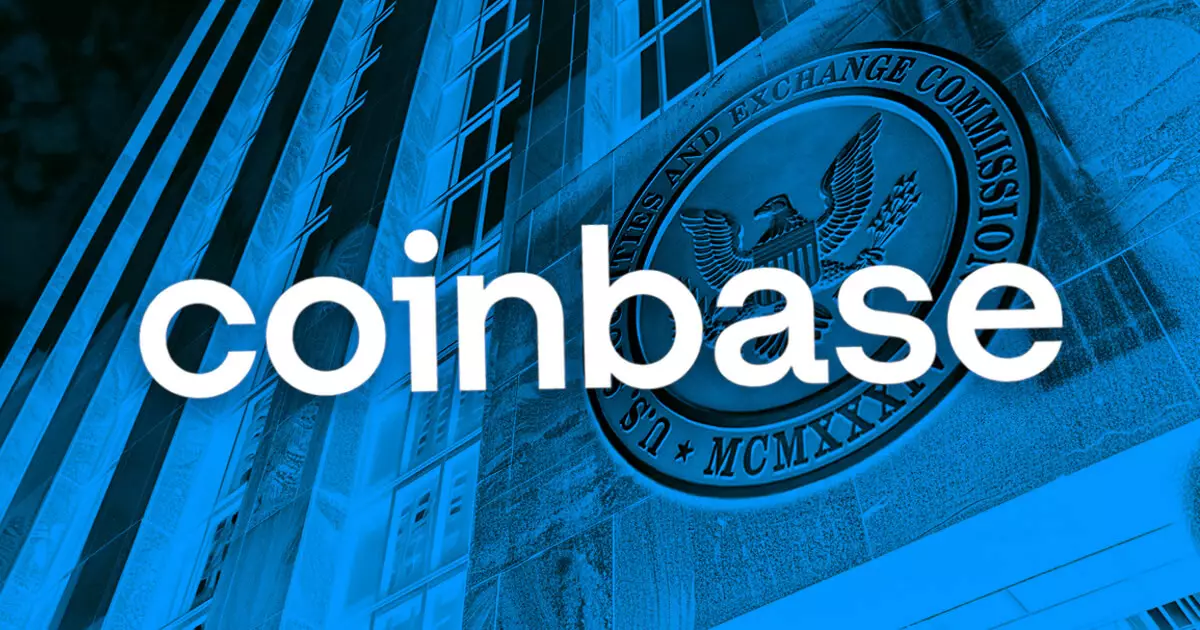The legal battle between the United States Securities and Exchange Commission (SEC) and cryptocurrency exchange Coinbase has turned a critical corner as the SEC seeks a four-month extension to wrap up fact discovery in their ongoing lawsuit. Initially filed in June 2023, the suit accuses Coinbase of operating as an unregistered securities broker. The outcome of this case could shape the future of cryptocurrency regulation in the United States, making it vital for both parties to prepare thoroughly.
The SEC claims that certain digital assets listed on Coinbase function as unregistered securities, thereby violating federal law. Their argument leans heavily on the Howey Test—a legal standard used to identify whether an asset qualifies as a security. The implications of classifying cryptocurrencies as securities are profound, potentially subjecting them to greater regulatory scrutiny and compliance requirements.
In a recent communication with Judge Katherine Polk Failla, the SEC requested the discovery deadline be pushed from October 18 to February 18, 2025. The agency asserted that the additional time is essential for it to sift through a considerable number of additional documents that have come to light during the discovery process. The SEC has highlighted its commitment to fulfilling court-mandated discovery requirements, noting that it has provided “hundreds of thousands” of documents to Coinbase to date.
During this process, a significant volume of documents—specifically 133,582 unique entries—are under review as ordered by the court. The SEC revealed that they have established a collaborative framework with Coinbase regarding search terms and custodians involved in the review, signaling some level of cooperation between the two parties in this contentious case.
However, the urgency of their request underscores the complex nature of cryptocurrency regulation and the challenges faced by the SEC in navigating the digital landscape. With this being the first request for an extension in the case, it has raised questions about the thoroughness of the initial discovery phase and whether the SEC is prepared for the legal responsibilities it has undertaken.
While the SEC has sought more time, Coinbase has consented to the request for an extension. This agreement illustrates a recognition that both sides require additional time to fully prepare for the upcoming legal challenges. Coinbase has also filed a motion to dismiss the SEC’s charges, claiming that the allegations are frivolous and that the regulatory body is overstepping its jurisdiction over the increasingly nuanced field of cryptocurrencies.
The exchange argues that the assets available on its platform do not adhere to the characteristics outlined by the SEC as qualifying them as securities. Furthermore, it criticizes the SEC for its lack of clear guidelines regarding which digital assets fall under the classification of securities. This gray area in regulation has left many cryptocurrency companies grappling with compliance issues, spurring debates on what constitutes legitimate regulation in the industry.
The lawsuit between the SEC and Coinbase is seen as a watershed moment in the regulation of cryptocurrency. As one of the largest exchanges in the United States, the outcome may set a precedent for how other exchanges operate and comply with federal law. Should the court side with the SEC, it could usher in a new era of regulation that could heavily impact how cryptocurrencies are treated, thereby transforming the marketplace and shaping business models.
Conversely, if Coinbase prevails, it may pave the way for a more flexible regulatory environment that acknowledges the unique aspects of cryptocurrencies. This case could determine how other platforms engage with regulators going forward and whether they continue to operate under the current ambiguous legal framework or push for more definitive regulations from Congress.
As the legal proceedings unfold, the request for an extension by the SEC points to the inherent complexities within cryptocurrency regulation. The case’s ramifications will reverberate through the industry, influencing regulatory frameworks, compliance standards, and potentially even legislative initiatives at the federal level. As stakeholders closely monitor these developments, the outcome of this legal battle will likely redefine the balance between innovation and regulatory oversight in a burgeoning industry that is still very much in its infancy.














Leave a Reply